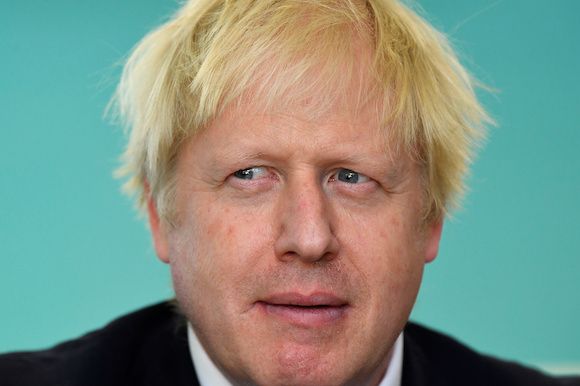Of all the shocks and outrages we have witnessed in the last three years, the most obscene so far was, in the end, barely commented on. It came on Monday night, when Boris Johnson rose in the Commons to appeal for an election.
What he said was drowned out by the fact he was proroguing parliament for nakedly political ends—but in fact carries even greater significance. The prime minister announced the following: “I will go to Brussels... on 17th October and negotiate our departure on 31st October—hopefully with a deal, but without one if necessary. I will not ask for another delay.”
The wording is crucial. Johnson declared, in parliament, that he will not seek an Article 50 extension even if there is no deal. That is a direct and explicit contravention of the Act of Parliament, approved last week, which mandates him to do so.
The prime minister has stated on the record that he is prepared to break the law. One interpretation is that he is indeed willing to do so. That would represent the gravest constitutional misdemeanour in 300 years. The likelier scenario is little better: that Johnson does not intend to break the law, but wants us to think he does.
Johnson’s premiership is demolishing everything the Conservative Party is meant to stand for: parliamentary sovereignty, the constitution, political stability, legal tradition, and Britain’s democratic institutions. It now behoves the Justice Secretary and Attorney General, along with moderate ministers such as Julian Smith and Nicky Morgan, to explain how they can remain in a government which does not commit to uphold the rule of law. But the PM’s tactics seem clear. He wishes to convince people that he will do anything and everything to deliver Brexit on time. This allows him to paint an image of the lone martyr ranged against the instruments of the British metropolitan elite. He has calculated that Tory voters, like American Republicans, are not in fact devotees of stability and tradition, but untapped revolutionaries who know what needs to be broken and which strongman needs to break it.
By promising, until the last moment, that he will defy parliament and the law, Johnson hopes to whip up his target electorate. He aims to radicalise ordinary voters against MPs, journalists, civil servants and judges: put simply, anyone in the British establishment who is not him.
Today’s judgment in the Scottish courts that the prorogation was unlawful feeds squarely into Johnson’s narrative. His central message is that the people want Brexit and only the PM will stand up for them. He needs to push this tactic just far enough that his MPs and more traditional voters stay on board, while appealing to those crusading voters who are prepared to slash and burn anything to achieve the divine grace of Brexit.
Once he has fomented this revolution, he will pull back. Johnson wants to be a martyr, but only insofar as it affords him electoral advantage. He does not care enough about Brexit to go to jail for it. He will either request the extension as the law demands, or resign.
He thus wants MPs and the courts to thwart him so he can promise to defeat them. Then he will have his enemy laid before him on a plate, ready to serve to the voters. The forthcoming election will prove less a festival of democracy than a frenzy. This will not be the people versus parliament, as so many fear, but the people versus parliament, the law and democracy itself.
The election was always meant to be fought on the platform not simply of delivering Brexit, but of upholding conservative values and stability against the supposed chaos and radicalism offered by Jeremy Corbyn. That tactic has been shot to pieces.
That also illustrates how the PM may quickly unravel. Many thousands of Tory voters are enraged and ready to fight alongside the prime minister. Many thousands more, however, will be horrified that Johnson subverted the rule of law, misled and politicised the Queen, and usurped the supremacy of parliament.
Johnson has initiated a more dangerous game than perhaps even he at first imagined. It could prove even more dangerous than defying the will of parliament. When push comes to shove, he is not interested in breaking the law. He seems more interested in convincing voters that the law is no longer necessary, and worse, actively opposed to the people. In a government lacking morality, integrity or decency, nothing is off-limits and anything is acceptable—and expendable—in the pursuit of an ultimate goal.
This Brexit will be built on scorched earth or will not be built at all. In the end, if Johnson violates the will of parliament, he will destroy both his party and our democracy. The greater risk is that he obeys the will of parliament and destroys our democracy anyway.
Boris Johnson’s game is even more dangerous than you think
Even if the PM doesn’t break the law, his tactics place democracy under grave threat
September 11, 2019

Photo: TOBY MELVILLE/WPA Rota/Press Association Images












